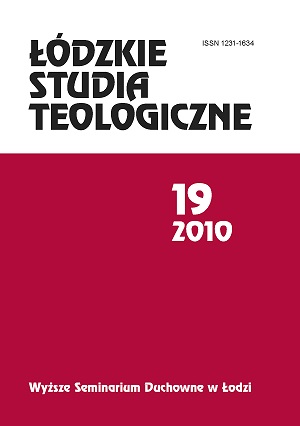Nowe koncepcje sekularyzacji w perspektywie teologicznej
New concepts of secularisation from a theological point of view
Author(s): Waldemar KulbatSubject(s): Political Philosophy, Politics and religion, Phenomenology, Sociology of Religion, Geopolitics
Published by: Wyższe Seminarium Duchowne w Łodzi
Keywords: secularization; autonomy of earthly realities; pluralism; modernization;
Summary/Abstract: The author of the article examines the theological interpretation of the phenomenon of secularization and to this end embarks on differentiating between various notions which bear resemblance to “secularization”. Secularization denotes the progressive autonomy of various spheres of human life in relation to the realm of religion, or religion-related norms and institutions. As opposed to secularization being a spontaneous process, laicization is usually understood as a targeted and intentional process of de-Christianizing social relations through structured activities intended to eradicate all forms of the presence of the Church and Christians from public life. De-Christiani-zation, in turn, is an atrophy of Christianity within the structures of the Church itself, especially in Western Europe. The compiled material serves to attempt to answer the following question: In what way does theology evaluate secularization? The author replies to this question by drawing on the assessments of the different protestant and catholic theologians and the teaching of the Catholic Church in the documents of the Second Vatican Council. As opposed to socialization meant to be an exclusion from the worldly life, the Second Vatican Council has juxtaposed secularization with the process of sanctification, which restores God to His due place and acknowledges Him to be the ultimate goal of all things, without questioning the legitimacy of earthly reality.
Journal: Łódzkie Studia Teologiczne
- Issue Year: 19/2010
- Issue No: 1
- Page Range: 117-144
- Page Count: 28
- Language: Polish

